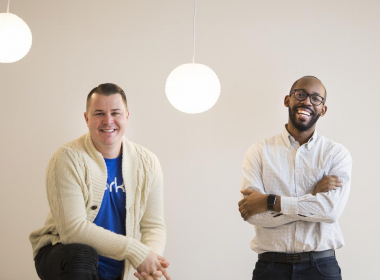
For hundreds of years, the Black church consisted of people of color congregating in a reasonably-sized building, listening to a large church choir sing old hymns, and glancing at the Good Book while listening to the preacher. Sunday services of today have completely transformed from that of yesteryear, and that’s all thanks to technology.
Walking into a modern church today is a drastically different experience from even 10 years ago. Many places of worship are deemed ‘mega-churches’ due to their enormous size and ability to carry tens of thousands of worshipers. Other churches have coffee bars; flat-screen televisions that display Bible verses, church information, and a live view of the preacher; and smaller church choirs that sing contemporary Christian songs.
AT&T’s Inspired Mobility Research Report indicates that technology is affecting the church experience in an even bigger way. The corporation’s recent survey found that 41 percent of participants said they connect with faith-based organizations or inspirational websites using their cellphones, laptops or tablets — compared to 32 percent who said they attend church regularly, and 25 percent who said using a mobile device is a part of their regular worship experience. Black worshipers were found to be most likely to use tech items for religious purposes, with 57 percent using this method.
No one would understand this shift from traditional worship to nontraditional better than tech expert Jason Caston. He launched The iChurch Method, a platform that helps churches keep their followers connected through digital means, whether it be streaming church services or viewing information and encouraging words on Facebook and other social media sites. Caston has gained additional knowledge on this subject as the digital lead at T.D. Jakes’ megachurch, The Potter’s House.
“Here at The Potter’s House, we’re looking at it like this: there’s a message, and there’s a method,” said Caston, who has worked with about 2,500 churches on building their digital platform. “We know the message that the pastor’s preaching is timeless and it stays the same. But the method is continually evolving. So we know the pastor’s not preaching from stone tablets or parchments or scrolls and stuff. If you’re trying to get your message to as many people as possible, you have to have a diversified method in the way you’re presenting that.”
Through this new method, Caston is able to reach thousands of people who otherwise may have missed out on receiving the gospel. Although Caston says typical iChurch users are tech-savvy individuals between the ages of 25 to 39, those who may take issue with the long-standing way of receiving the Word are also likely to be attracted to getting their spiritual fix digitally.
“People who don’t like to attend traditional church, like introverts or people who have been scorned by their house of worship, they’re [going] to stay connected and get what they want,” he said.
“If you look at it like the music industry, instead of buying the whole album, whether it be from Spotify or iTunes or what have you, I can just listen to the songs I want. So the Internet is becoming a place where we can have a customized experience of what we want from whomever we’re connecting with, and church or your worship experience is no different. So if I don’t want to sit through the whole experience, I can log on and just watch the part that I want, and then go on about my life,” he added.
So, if religious people are moving toward nontraditional ways of staying connected to their faith, does that mean visiting a traditional place of worship will completely go out of style soon?
According to Caston, this isn’t the case. In fact, he says that many churches have rejected iChurch from fear of losing churchgoers, but he insists that his tech method actually serves to assist what spiritual leaders already have in place.
“I’ve been in meetings with churches where they’ve said flat-out ‘no’ [to iChurch]. Because here’s the thing — they look at this online church as something that’s going to supplant the church as opposed to supplement it. So I tell them ‘hey, I’m not trying to replace what you guys have done.’ It’s not going to replace traditional church,” he explained.
“We’re looking at it as a digital ministry, a digital mission tool. Churches understand missions and missionaries going out in remote places all across the world to [spread] their message. So this is just a digital missionary tool. And we’re just reaching people who are online. Since there are over 3 billion Internet users, how about we reach them?”















